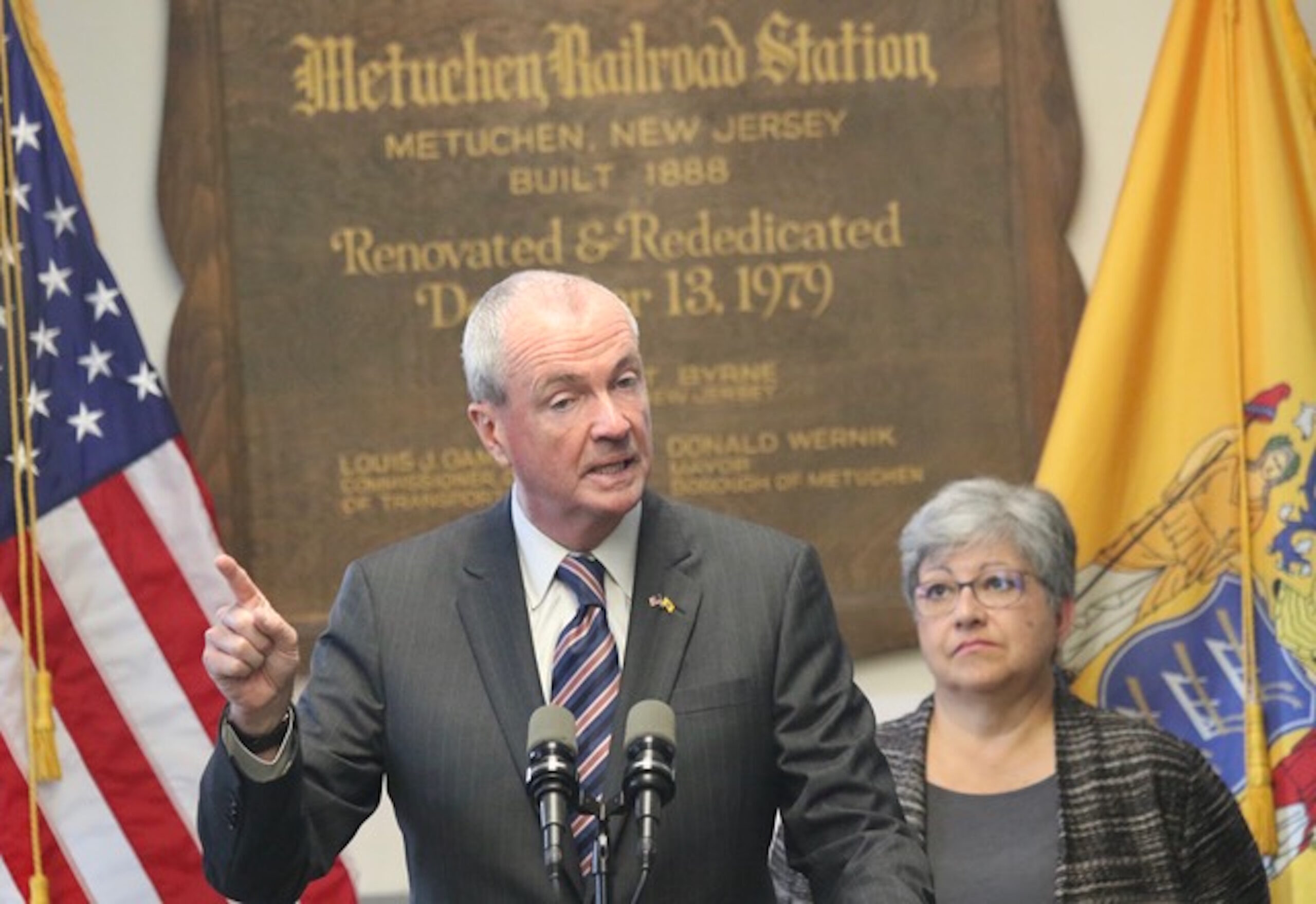Gov. Phil Murphy joined state officials on Oct. 9 in promising improvements at NJ Transit, where a state-commissioned report released the same day found deficiencies in a public transportation agency that Murphy had called a “national disgrace.”
The North Highland Company, a consultant the state Department of Transportation tabbed earlier this year, spent 100 days analyzing NJ Transit, identifying problems and recommending solutions.
In particular, the firm found an “absence of strategic planning and a technology roadmap.” In terms of employees, “recruitment policies and processes are inefficient,” the 166-page-report said. “NJ Transit struggles with staffing shortages and an insufficient pool of high-quality candidates.”
To correct the problem, the consultant recommended, among other things, streamlining “hiring processes by eliminating non-value added activities.”
Murphy said the audit also calls for having a “streamlined leadership structure” at NJ Transit.
On the financial side, NJ Transit’s operational and maintenance costs rose “nearly 30 percent in the past 10 years” in the face of declining subsidies that led NJ Transit “to fund operations through dollars intended for capital projects to meet rising ridership demands.”
“Each of us up here and all of you out there knew there were shortcomings in the way NJ Transit worked at its most basic and elemental level,” Murphy said in the 130-year-old Metuchen, Middlesex County, train station during a press conference at which he was joined by state Department of Transportation Commissioner Diane Gutierrez-Scaccetti, NJ Transit Executive Director Kevin Corbett and others.
As trains zipped by outside, Murphy touched on the steps his administration has already taken, including new leadership and increased state funding, to fix NJ Transit, which operates a fleet of 2,220 buses, 1,230 trains and 21 light rail trains.
“We knew we needed to do more than just, as they say, pop the hood, change a couple of spark plugs and expect the car to run as new,” Murphy said. “We knew we needed to pull out the engine, break it down and assess piece by piece to rebuild it stronger and to ensure safe and reliable long-term performance.”
In terms of implementing the recommendations, Murphy said it is doing so where things can be done administratively. Also, officials are working with the state Legislature on changes that require action by lawmakers.
“We are not going to let this audit collect dust,” he said. “I’ve said all along this isn’t going to happen overnight. It will require us to constantly step back and assess even as we continue to move forward.”
“This report is our opportunity today to start new, to use the document as a foundation to bring NJ Transit into the 21st century and to make it an agency our customers both expect and deserve,” Gutierrez-Scaccetti said.
The state’s transportation chief later touched on the need for NJ Transit to have a strategic plan.
Corbett said NJ Transit already has been making changes aimed at producing “more consistent customer experience, with better service reliability and improved communications … ”
State Sen. Patrick J. Diegnan Jr. (D-Middlesex), chairman of the Senate transportation committee, and state Sen. Thomas H. Kean Jr. (R-Middlesex, Somerset and Union) joined Murphy in a show of bipartisan solidarity on the issue.
“Whatever legislative initiatives are needed to make this right, we’re here to do it,” Diegnan said.
Laura Kayne, a Metuchen resident who commutes to work in New York by train, spoke of her experiences using NJ Transit.
“On a good day, my train commute can be efficient, productive and, yes, even enjoyable,” she said. “But unfortunately, those days are few and far between.”
She shared how last week, her ride home took more than three hours.
“I arrived to find my kids sound asleep meaning that, once again, I completely missed out on that valued quality time,” she said.
State Assemblyman Andrew Zwicker (D-Mercer, Hunterdon, Somerset and Middlesex), on Oct. 9 called the audit “long overdue.” He had served on a committee looking into NJ Transit’s problems.
“The safety and reliability of our trains must always be at the forefront of the transformation of the agency,” Zwicker said. “Better communication with commuters, improved physical infrastructure, and hiring the best people are all things that should not have taken an audit to highlight. But I welcome this report as a step toward once again making NJ Transit a best-in-class organization.”
During the press conference, state officials declined to pin any blame for NJ Transit’s woes on Amtrak, which owns the Northeast Corridor line and New York Penn Station.
“We take responsibility for that which we have to fix, and we will do that,” Gutierrez-Scaccetti said.
As for the cost of public transportation going up anytime soon, Murphy said a fare increase would be held off “until at least” June 30.

